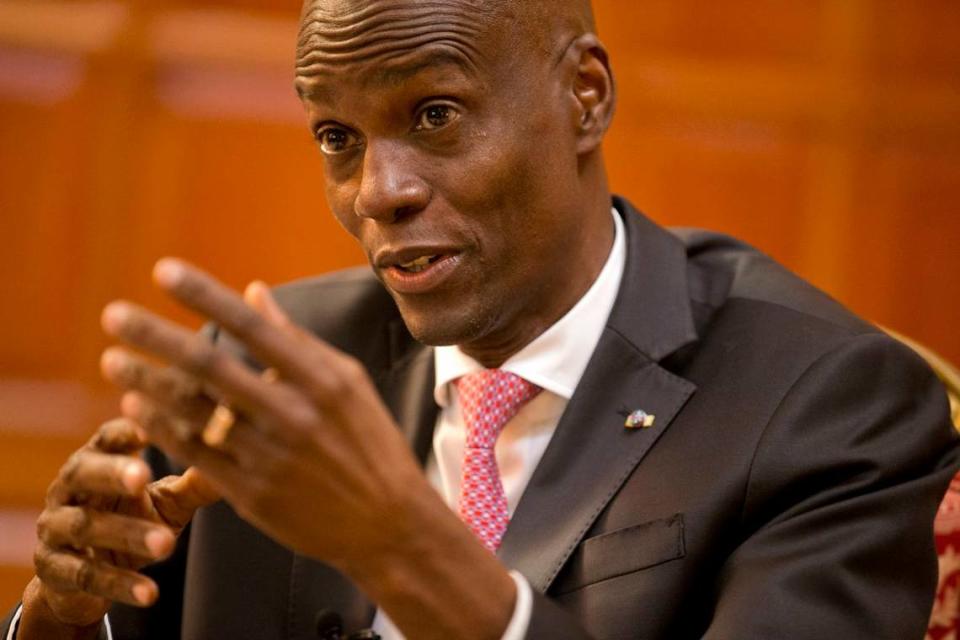White roses and candles used to memorialize assassinated Haitian president in Little Haiti
- Oops!Something went wrong.Please try again later.
Dozens of people gathered Thursday night to pay tribute to Haitian President Jovenel Moïse, who was assassinated earlier this month.
Mourners were given a white rose and candles as they entered the Notre Dame d’Haiti Catholic Church in Little Haiti.
“Today we are on the eve of the late president of Haiti’s funeral and we take this time, this evening, so that we can offer this mass, this memorial mass, as a mass of memories so we can remember who she was and what he did,” said Father Reginald Jean-Mary before the memorial. “This is a moment of deep sadness for the country, but this is the moment we must regain our strength because we are people to believe that in darkness there is always a light.”
During the mass to a nearly filled church, Jean-Mary remarked on how close Moïse is to the Haitian community.
“We have come together to say ‘no violence’ and ‘yes’ to peace... and compassion,” Jean-Mary said.
As hymns were sang and recited, some gatherers were moved to tears while soulfully singing with the choir.
About a hundred members of the community, mostly Haitian, attended the memorial mass clad in black.
Parochial Vicar Father Youry Jules emphasized the ripples that Moïse’s death would cause.
“The death of one is the chance of all of us,” Jules said. “We’re all connected as one society.”
The service comes a day before Moïse — who was killed July 7 in a brazen attack that left his wife injured — will be buried on the grounds of his family’s private residence on the outskirts of Cap-Haïtien.
His wife, Haiti’s first lady Martine Moïse, returned to Haiti Saturday after being treated at Jackson Health System’s Ryder Trauma Center for gunshot wounds she sustained in the attack.
More than 25 people, including 18 Colombians and two Haitian Americans, have been arrested in connection with the attack.
Dr. Ariel Henry, 71, who was named prime minister by Moïse two days before his death, has since taken control of the country.
Moïse had a message to Miami’s Haitian community: “We ask them to remain united despite our differences, we do not have to agree on everything. He was our boy. He was a Haitian. He was a son of Haiti. He was our leader. The manner in which he died was a scandal, and injustice. Today, every corner of Haiti is fighting for justice. Justice for him, justice for all the people that died. This is the moment to remember that when one family is crying, all of us are crying because we are human beings and the children of God.”


